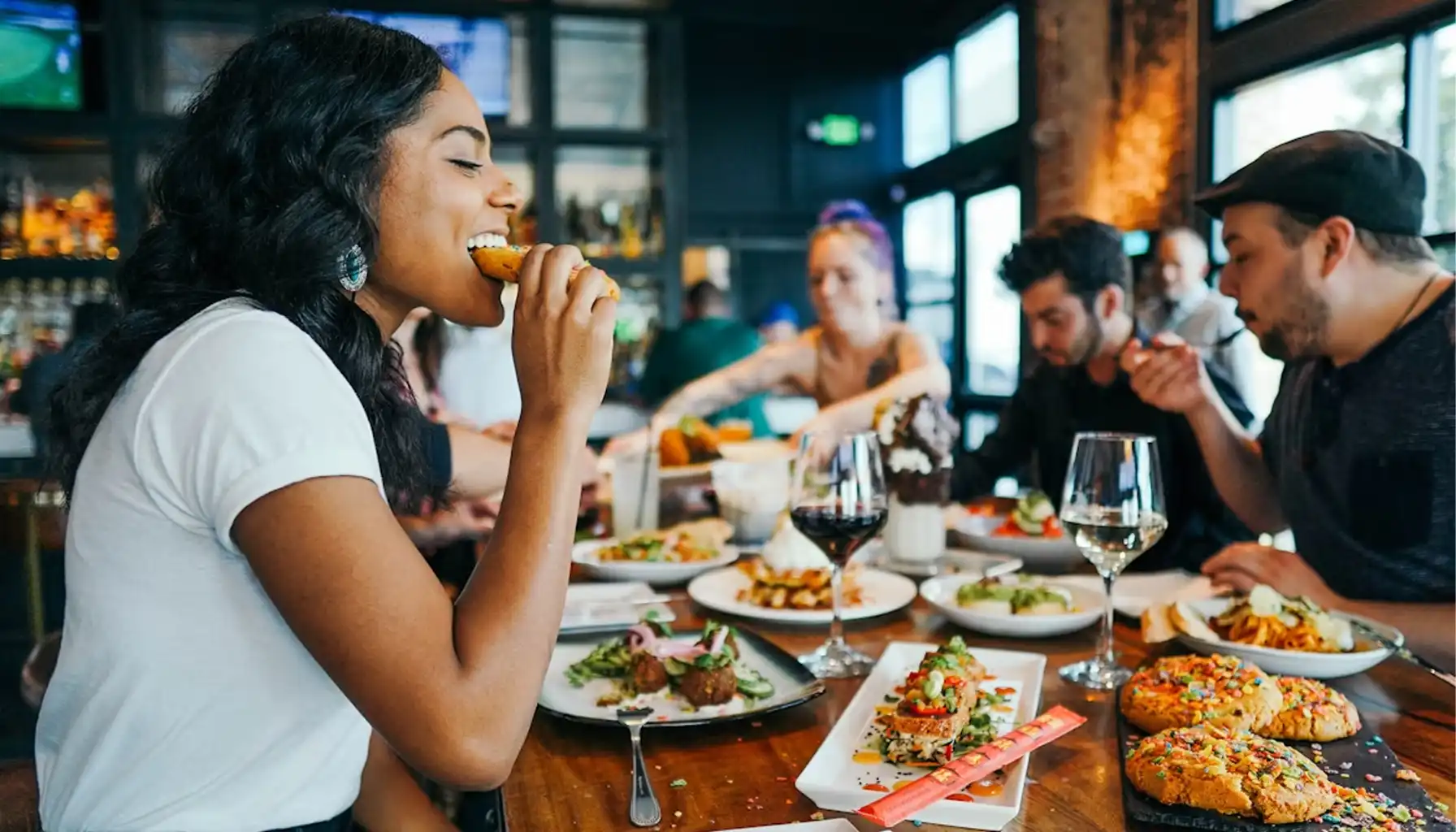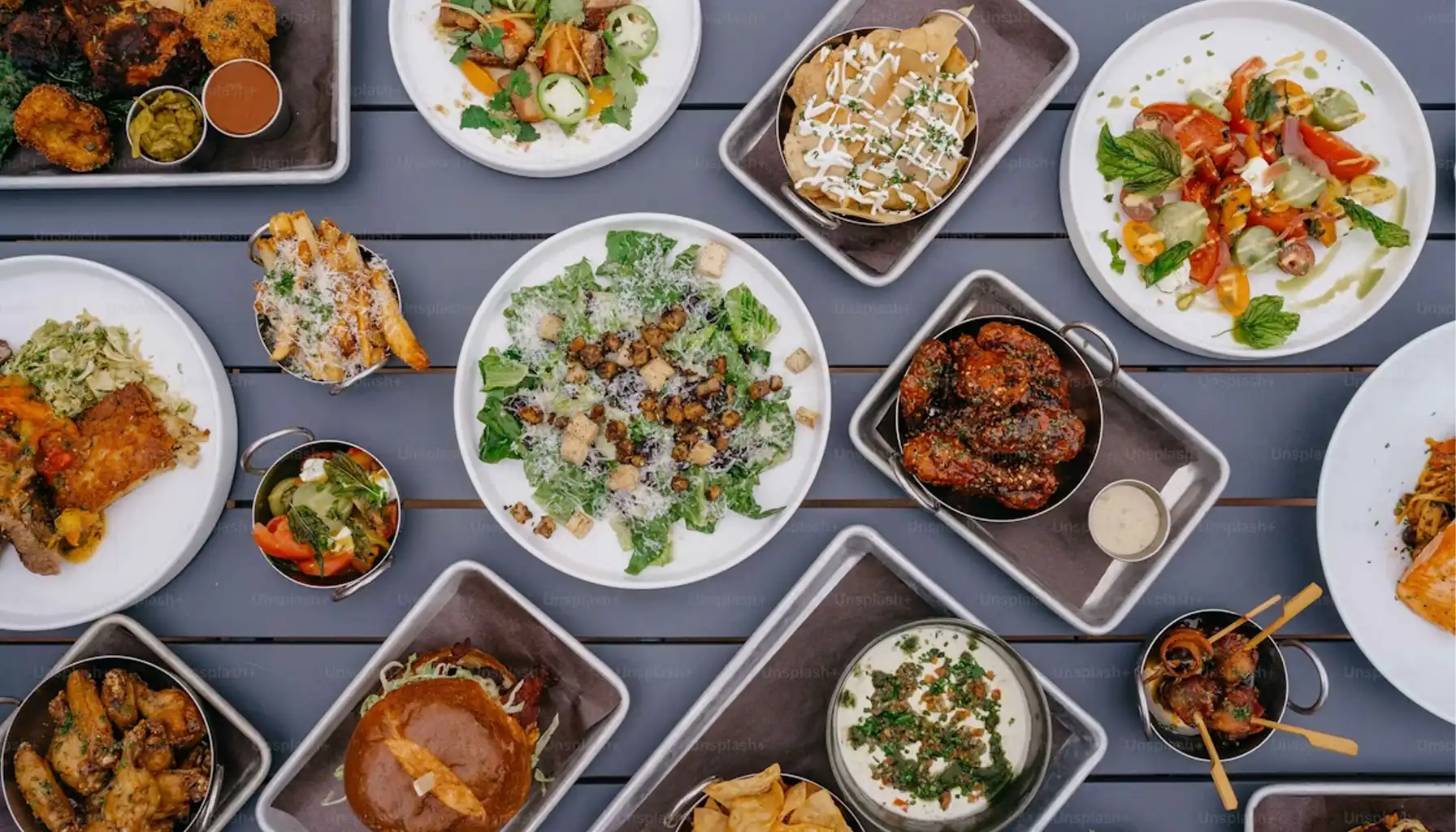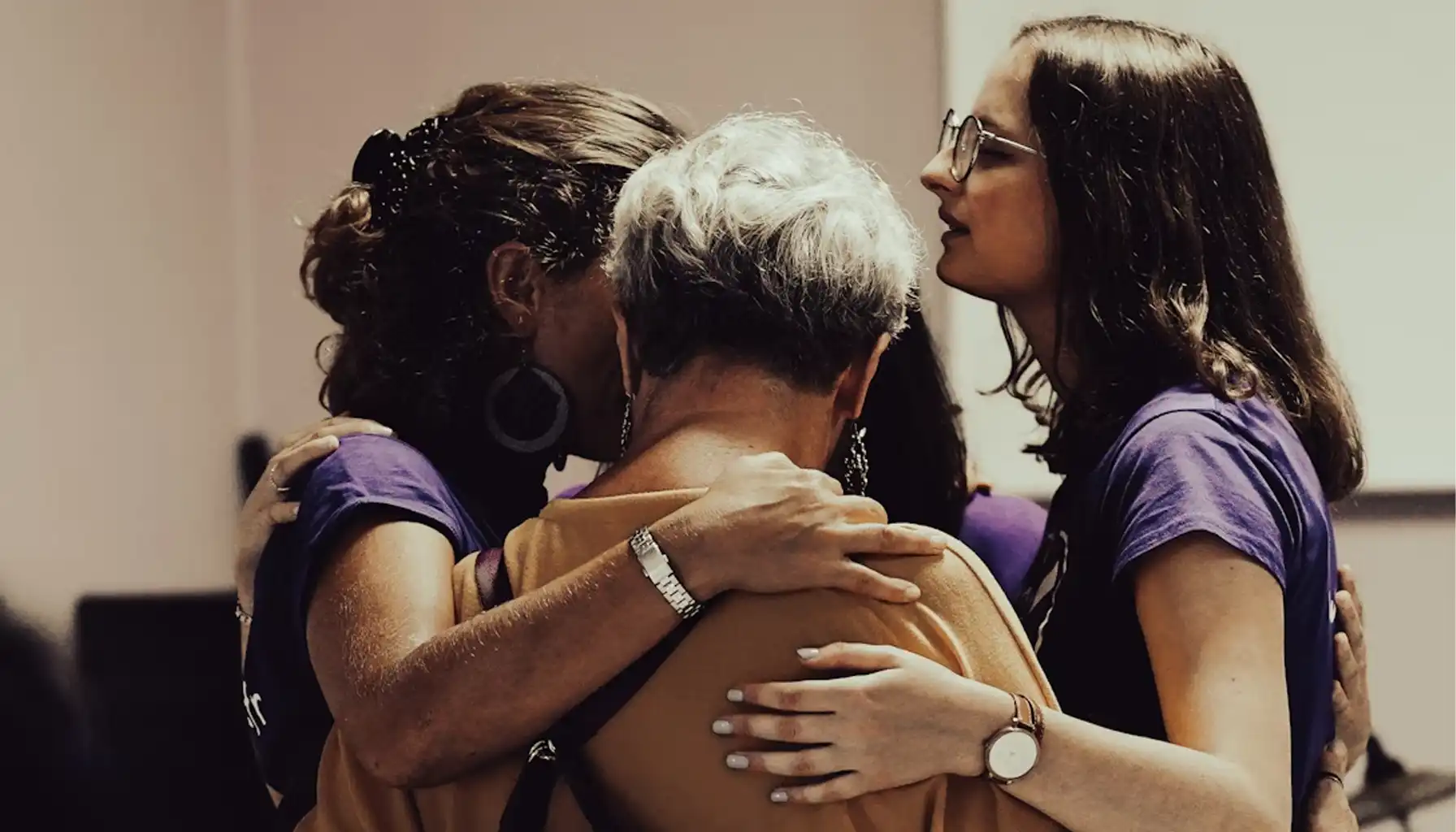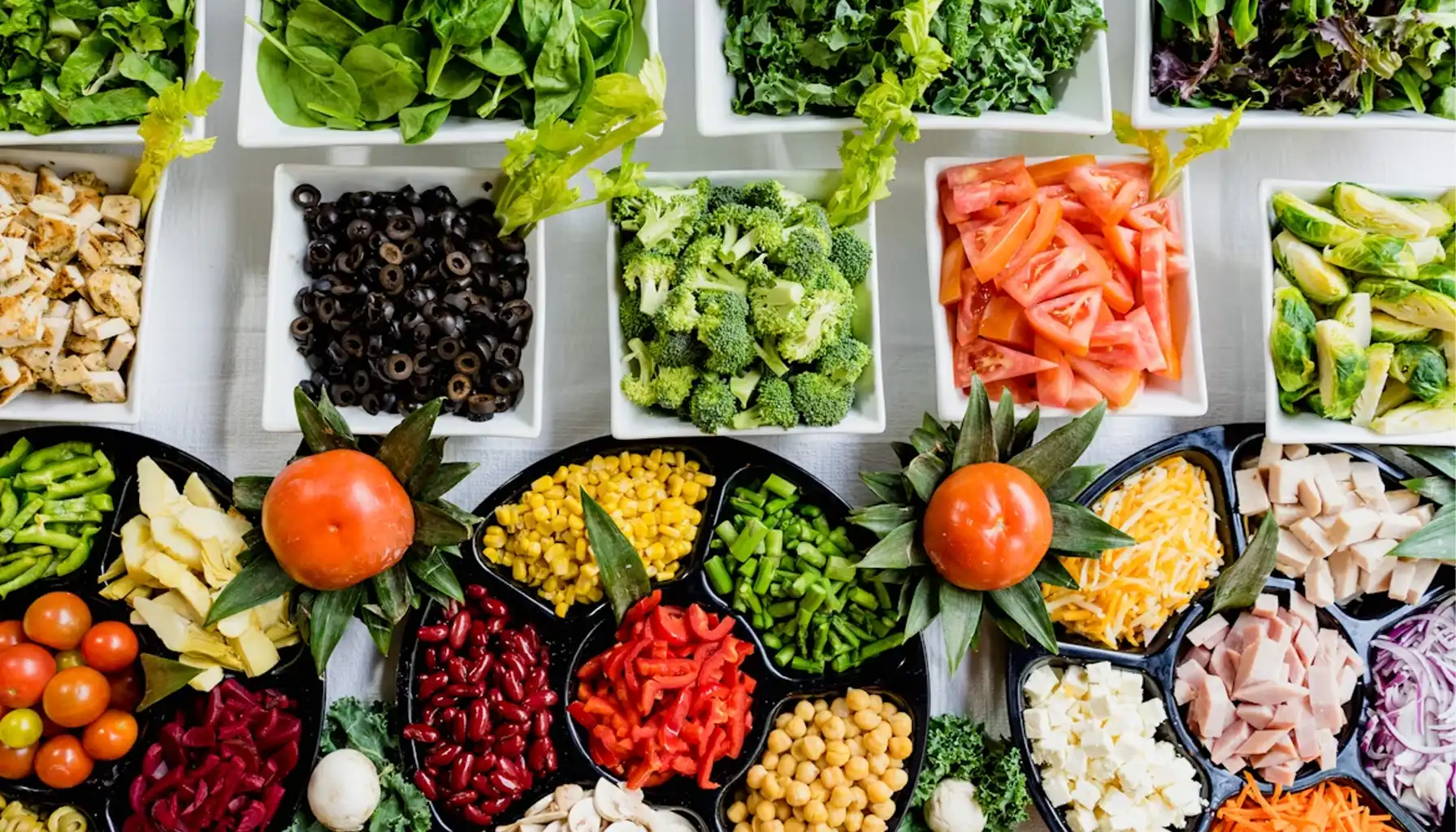Contents:
- Cibophobia Meaning and Specificity of Food Perception
- Cibophobia Definition in Psychology
- Cibophobia Symptoms: How Fear of Food is Expressed
- Fear of Swallowing Food and Related Types
- What Causes Cibophobia: Psychology and Biology
- How Specialists Identify Cibophobia?
- Cibophobia Treatment: Approaches to Therapy
- How to Live with Cibophobia: Practical Advice
- Links to Other Mental States
- Conclusion
Cibophobia is an anxiety disorder where food stops feeling like nourishment or joy and instead becomes something frightening. A person facing this problem may avoid the simplest products, shudder at the thought of eating, or even refuse to eat at all, risking their health. To notice the first signs in time and support those who live with it, it’s important to ask yourself: what is cibophobia?
In the life of people with this phobia, every morning can begin with anxiety: "What will I be able to eat today?" A simple trip to the store becomes a challenge, and an invitation to a restaurant into a source of panic.
Special programs like brain training games help to develop the skill of resilience, which reduces the intensity of phobic reactions.

Cibophobia Meaning and Specificity of Food Perception
Cibophobia meaning refers to more than just fear of poisoning. For a person, every meal feels like facing a threat. Even a familiar taste causes tension, and new foods cause panic. For some, this fear is associated with the fear of food contamination, when any dish is seen as potentially spoiled.
The fear of choking on food can be especially severe: a person can avoid solid foods, cut food into tiny pieces, or drink liquid after each bite to “protect themselves.” Others complain of the feeling that the food is “wrong” in texture or color. As a result, the body does not receive enough nutrients, and the mind never feels secure.
Cibophobia Definition in Psychology
Clinically, cibophobia is classified as a type of specific phobia. The brain gives a danger signal even in situations where there is no danger. The heart begins to beat faster, sweating starts, hands tremble. Some patients admit: "I know that everything will be fine with me, but the body still reacts as if I am in danger."
To define cibophobia, psychiatrists rely on the DSM-5 criteria. The condition is considered a phobia if the symptoms persist for at least six months, lead to avoiding food and significantly impair quality of life.
The answer to the question "cibophobia is the fear of what?" is simple: fear of food as a threat, due to which meeting this basic need becomes a daily struggle.
Cibophobia Symptoms: How Fear of Food is Expressed
They are varied and depend on the degree of fear. A mild form may be limited to nausea at the sight of certain foods. In more severe cases, the following symptoms may occur:
rapid heartbeat and a feeling of a "lump in the throat";
panic even at the thought of an upcoming dinner;
trembling, weakness, sudden dizziness;
unwillingness to eat in public for fear of revealing your reaction;
obsessive thoughts that any food will lead to illness.
Many develop relationship problems, since the partner doesn’t understand why shared meals cause stress. A person may start pulling away from others, which only fuels the anxiety and makes the loneliness feel even heavier.
Fear of Swallowing Food and Related Types

Some patients report that it’s not the food itself that scares them, but the process — for example, fear of swallowing food. Even soft bread feels threatening. People take sips of water after each bite, and try to eat only purees or soups.
There is another option: fear of food touching. Here, the problem is in the contact of products with each other. The plate must be divided: meat separately, vegetables separately, side dishes separately. Breaking this “ritual” causes severe tension.
Others are afraid of ready-made meals: fear of eating food prepared by someone else. In their minds, control over the process is the only way to avoid the threat. As a result, people avoid restaurants and dinner invitations, which increases isolation.
Table: Food Phobia Variants and Their Descriptions
Type of Fear | Features | Possible Consequences |
Fear of food poisoning | Fear of poisoning even with fresh products | Constant anxiety, excessive checking of expiry dates |
Fear of food disorder | Panic before any meal | Refusal of food, weight loss |
Fear of food touching | Aversion to foods touching each other | Formation of rituals, prolonged mealtimes |
Fear of swallowing food | Feeling of threat when swallowing | Panic attacks, switching to liquid diet |
What Causes Cibophobia: Psychology and Biology
There are many factors, and this issue cannot be explained by a single cause. Most of the time, it’s a mix of what someone has been through, who they are, and the situations life puts them in:
Traumatic memories: a person may have once choked or vomited after eating a certain dish.
Family habits: parents' excessive attention to expiration dates or cleanliness leads to overcontrol.
Heredity: people with anxiety disorders in the family are at higher risk.
Neurobiological features: increased sensory sensitivity associated with signs of autism makes food textures intolerable.
Social influences: news of outbreaks of infections, stories from friends, experience of a pandemic.
Sometimes people ask: is cibophobia an eating disorder or is it a separate phenomenon? If we’re being honest, it’s not nearly as straightforward as it might appear. There are similarities: a person refuses to eat, loses weight, becomes exhausted. But unlike anorexia, there is no desire to lose weight.
The phobia is classified as an anxiety disorder, not an eating disorder. However, a combination is possible: for example, a patient with bulimia may develop a secondary fear of food, which increases avoidance.

How Specialists Identify Cibophobia?
Psychotherapists analyze symptoms and use standardized questionnaires. The diagnosis is usually made based on a combination of factors: intensity of anxiety, duration of more than 6 months, and noticeable deterioration in life.
There is no specific test like the chronophobia test, but specialists use questionnaires to assess anxiety, phobia scales, and discussions of eating habits. The doctor also checks for somatic gastrointestinal diseases to rule out other conditions.
Cibophobia Treatment: Approaches to Therapy
Treatment is based on a comprehensive approach. It’s important for the patient not only to eliminate the symptoms, but also to restore a normal perception of food:
CBT teaches how to replace negative thoughts with constructive ones: “Food is not an enemy, but a resource.”
Exposure is a gradual introduction to “fear-inducing” foods. First, photos, then the smell, then a small piece.
Hypnotherapy is work in a state of relaxation, where the brain is receptive to new associations.
Medications help with severe forms of anxiety and panic.
Group sessions provide a sense of support: “I am not alone with this fear.”
Such steps allow a person not only to cope with panic, but also to rediscover the joy of eating with others.
How to Live with Cibophobia: Practical Advice
Knowing how to deal with cibophobia means being able to build daily habits. It’s useful to:
Plan your meals in advance to reduce anxiety from the unexpected.
Try to eat at the same time every day - this creates a sense of stability.
Playing calm tunes while you eat helps ease tension and sets a softer mood.
Keep a "taste diary" where you record emotions and reactions to foods.
Work with visualization: imagine food as a source of energy, not a threat.
Talk it through with a therapist or support group.
Master relaxation techniques after meals so as not to get hung up on sensations.
Start with mini portions - this helps reduce fear of food.
Over time, many learn to enjoy the taste and smell of food again, ceasing to perceive it as a threat.

Links to Other Mental States
Often people have ocd fear of food poisoning. This is expressed in obsessive checks: washing vegetables dozens of times, refusing to eat what someone else has cooked. This condition is often accompanied by depression, because constant anxiety drains emotional resources.
Therefore, therapy should take into account all aspects: not only the fear of food, but also associated disorders.
Conclusion

The final definition of cibophobia is: it’s an irrational, persistent fear of food that destroys physical and mental health. It forces a person to deny themselves a basic need, leads to isolation and nutritional deficiency.
Without therapy, such conditions worsen. But proper treatment, support from loved ones and self-help practices allow you to regain control and build a healthy relationship with food.





